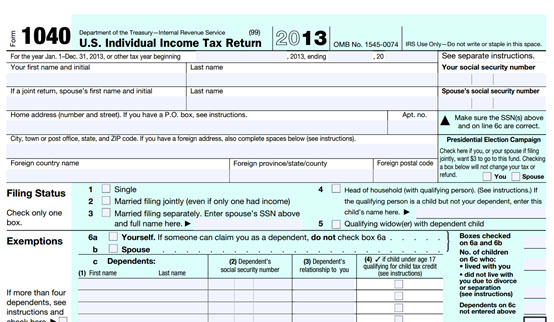
Iowa State offers several resources for students who need help filing their taxes.
AMES, Iowa – No one really enjoys doing taxes and if you’re a college student, making less than the required $10,000, you may wonder if it’s even worth your time to file. If you are asking that question, Jonathan Fox says the answer is – absolutely.
Fox, director of the Financial Counseling Clinic at Iowa State University and Ruth Whipp Sherwin professor in human development and family studies, encourages all students to file whether they think they will get a refund or not. There’s a misconception that the filing process is overly complicated, but Fox points out that the most complex tax form is really only two pages, albeit with plenty of attached schedules when the need arises. Most students can use a simple form and it’s free to file.
“Despite the horror stories, the personal income tax system follows a fairly simple seven-step process, and doing your own taxes could pay you back pretty handsomely if you’ve had money withheld and you didn’t earn that much,” Fox said.
Fox offers the following tips for students:
- Start at the IRS FreeFile website. Each tax preparation site has limitations for free filing, but most students working part time should qualify.
- If you don’t want to go it alone, the Volunteer Income Tax Assistance (VITA) on campus can help through April 15. ISU Extension and Outreach also offers tax help statewide.
- Even if you owe nothing and your income is below the $10,000 filing requirement for a single taxpayer not claimed as a dependent by someone else, you should file to get back any taxes withheld during the year. If you didn’t file in the past and think you may be owed a refund, you can amend your taxes for the last three years and get that money back, too.
- Talk to your parents to see if they are claiming you as a dependent. If you both claim the dependency exemption, the IRS will catch it and taxes and penalties will be due.
In most cases, Fox says parents will claim their student as a dependent because they are still providing financial support. However, if students are paying their tuition and rent, they may meet the 50 percent threshold to be considered independent by the IRS and get to use their own exemption.
Start planning now for next year
The Financial Counseling Clinic is not a tax preparation service, but counselors can help students with tax and financial planning. Fox says financial counselors can help students project what their taxes will be for the next year. Then they can consider adjustments to W4 withholdings or discuss starting a Roth IRA or other savings plan.
Although most people look forward to a tax refund, Fox said the objective should be to pay a small amount at the end of the year. Having less withheld throughout the year means a bigger paycheck and money that can go to savings or other expenses. Otherwise, taxpayers are essentially letting the IRS borrow their money for 15 months, interest free, Fox said.
“It’s just like overpaying on your electric bill all year. Then in April of the next year, the electric company gives you back the money that you didn’t spend on electricity. We would never do that, but that’s exactly what it’s like when you get a tax refund,” Fox said.
Students who want to learn more can take a one-credit class on personal finance (HDFS 183). Fox says the class, offered every semester, includes a tax component and focuses on managing student debt and budgeting to avoid financial problems. There’s still time to sign up for the class, which begins on March 10.
